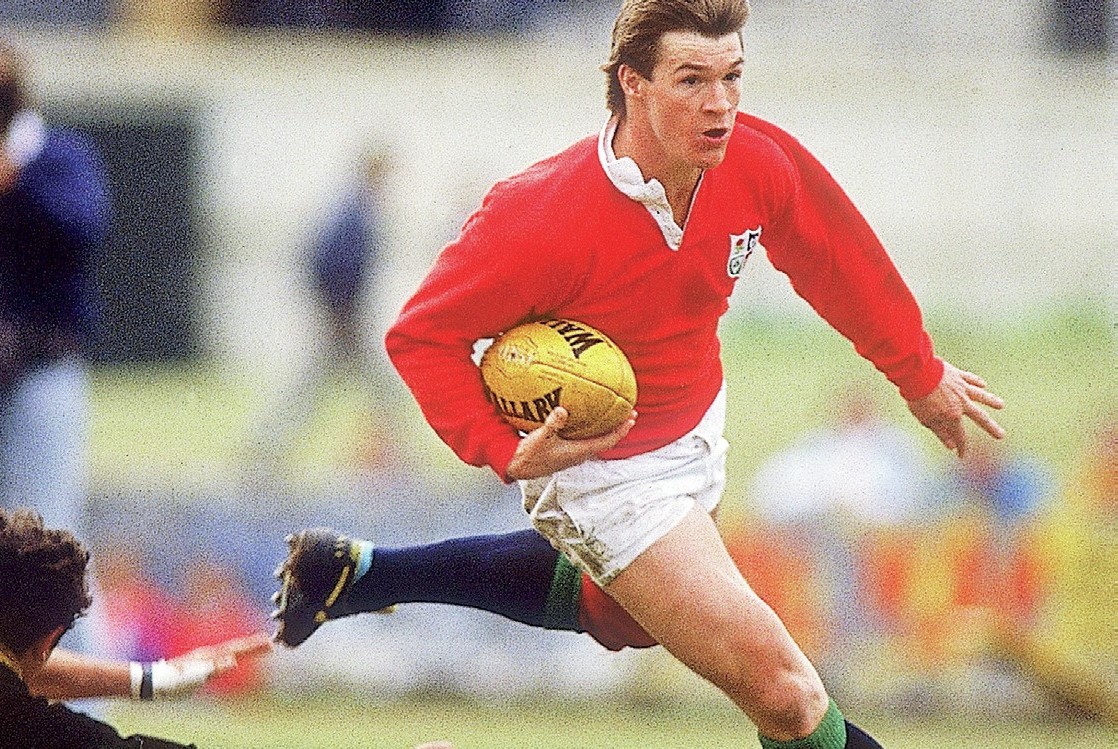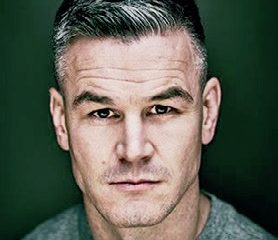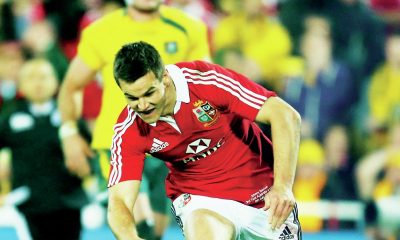
PETER JACKSON
THE MAN TRULY IN THE KNOW

THE Brewery Field in Bridgend last Wednesday night offered more than a few famous old faces in a packed clubhouse listening to one of their own spin a few yarns. An evening with John Devereux provided a buckshee trip back through time for a glimpse of Welsh club rugby as it used to be; when the Bridgend of Billy Griffiths and Keith Bradshaw ran their own brand of Total Rugby in the Sixties and paved the way for the All Blacks to be in town a decade later.
The tourists left a stink which still hasn’t entirely blown away 45 years after New Zealand prop John Ashworth put a stud clean through JPR Williams’ cheek, a gash that required eight stitches of needlework from the captain’s father, Dr Peter Williams, the Bridgend club’s president.
Devereux, then a 12-year-old schoolboy, was given the afternoon off to stand at a Brewery Field packed as never before by 17,000 fans despite the rain falling by the bucketful. Getting in was one thing, finding a vantage point a different matter entirely.
“It was a horrible day of non-stop rain,” he said. “Luckily we found a metal container inside the ground and we stood on that otherwise we wouldn’t have seen a thing.”
The boy from nearby Pontycymmer had begun making a name for himself as an exceptional all-round sportsman. It would be but a matter of time before the fans would be paying to see him plough his own furrows all over the Brewery Field.
Soon enough Devereux would join the galaxy of players from the town and the surrounding area who made it not only for club and country but as Test Lions: Jack Matthews, Dafydd James, Scott Gibbs, Gareth Thomas, Rob Howley, Gavin Henson and, of course, JPR himself to name but a few.
Devereux would achieve more than merely emulating them. He did something unique which makes him stand out even in the most exalted company, the first rugby player of any nationality to finish on the podium at World Cups in both codes. Five years after helping Wales beat Australia’s Wallabies to finish third at the first global tournament in New Zealand, Devereux ended up in the silver medal position with Great Britain after losing the 1994 Rugby League World Cup final to a bigger breed of Aussie marsupials, the Kangaroos.
And thereby hangs a tale, the kind which the more egocentric ex-players would pretend had never happened or gloss over without going into any detail lest it damages their image. Devereux has tripped over a few obstacles in his time but never one caused by an inflated ego because he hasn’t got one, inflated or otherwise.
Bridgend’s native Lions’ XV plus one
Full-backs: JPR Williams, Lee Byrne
Wings: Dafydd James, Gareth Thomas
Centres: Scott Gibbs, Gavin Henson, Jack Matthews, John Devereux, Mike Hall
Scrum-halves: Rob Howley, Gareth Cooper, Rhys Webb
Prop: Ian Stephens
Hooker: Alan Phillips
Back row: Gareth Williams, Josh Navidi
Guided by a ghostwriter in ex-Western Mail journalist Andy Howell who knows a good story when he sees one, Devereux’s autobiography Devs, Double Dragon, Double Lion (St David’s Press), doesn’t short-change the reader with any fatuous drivel. Instead he owns up to being at fault for the Kangaroos scoring the only try of the match and lets it all pour out.
Great Britain lost the final 6-10 because of one missed tackle, Devereux’s on his opposite number, Steve Renouf of the Brisbane Broncos and the Wigan Warriors, an all-time great known to all and sundry as ‘The Pearl’.

“The Aussies were attacking my right side of defence,” says Devereux. “I was mindful that Phil (Clarke), my defensive partner, was carrying his leg so I was standing closer to him in defence. Steve Waters (Kangaroos hooker) picked the ball up from a ruck in the middle of the field just outside our 20m line and saw that I was tight to Clarke. So he held the ball and ran diagonally which caught me ball-watching as he sent a sublime pass to Steve Renouf.
“Renouf was a lightning centre and had got on the outside of my right shoulder. I tried to adjust and put a cover tackle in but he was too quick. The quality of the pass from Waters had done me. Renouf was gone … we tried our best to snatch the lead back but ran out of steam.
“The game ended and I was beside myself. I had never cried on a rugby pitch but, after the final whistle, I sank to the floor and the tears started flooding. I was utterly devastated, for my teammates, the fans and my family and friends watching. Ellery Hanley came over and picked me up off the turf but I was still so upset.
“He said: ‘Come on John, it’s not all your fault. We had chances in that game and we didn’t take them. I’ve made similar mistakes. You just have to dust yourself down and go again, be stronger and better next time’.
“Our changing room was like a morgue. After dinner back at the hotel, I drowned my sorrows. The torment didn’t end there because some of the players’ wives travelled home with us on the bus.
“They weren’t happy their husbands had missed out on a £5,000-a-player win bonus. I could hear comments like: ‘There goes my new conservatory. There goes my new kitchen. There goes my new car’. A bonus of 5k would have bought any of those back in 1992.”
Devereux played 484 matches for Bridgend, Sale, Worcester, Pontypool, Maesteg, Wales, Barbarians, Lions, Widnes, Manly Sea Eagles, Bridgend Blue Bulls and Great Britain. They love him on Merseyside and everywhere else because he gave the fans value for their money. The book is no different.



























You must be logged in to post a comment Login